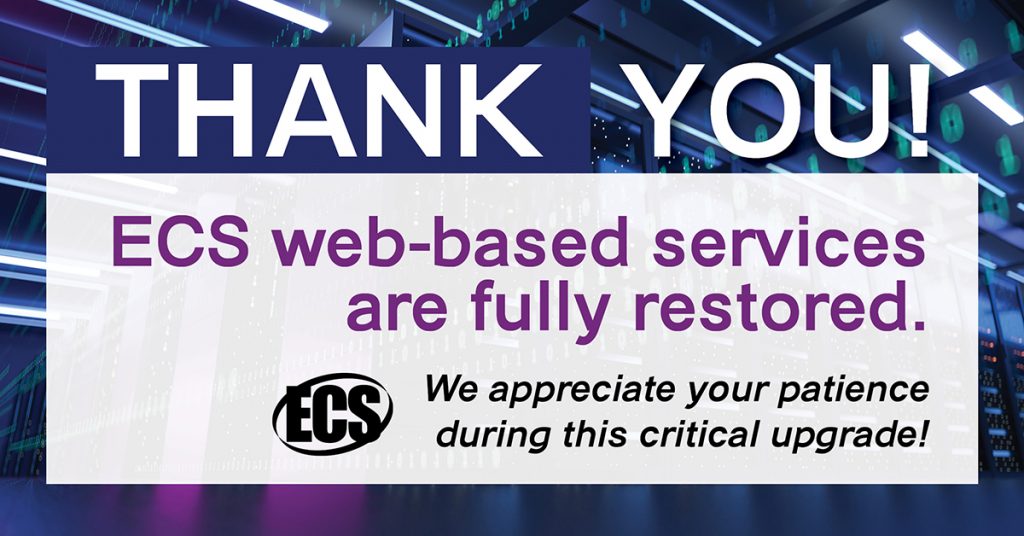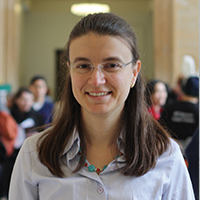 Electrochemistry is the magic that binds together the many fields that excite Professor Bilge Yildiz, ECS Awarded Life Member and recipient of the 2012 ECS Charles W. Tobias Young Investigator Award—and invited speaker in the 241st ECS Meeting Symposium I05: Mechano-Electro-Chemical Coupling in Energy Related Materials and Devices 4. Prof. Yildiz was named a 2021 Fellow of the American Physical Society for “innovative contributions to understanding and manipulating ionic defects and charge transport at electro-chemo-mechanically coupled oxide interfaces and devices.” (more…)
Electrochemistry is the magic that binds together the many fields that excite Professor Bilge Yildiz, ECS Awarded Life Member and recipient of the 2012 ECS Charles W. Tobias Young Investigator Award—and invited speaker in the 241st ECS Meeting Symposium I05: Mechano-Electro-Chemical Coupling in Energy Related Materials and Devices 4. Prof. Yildiz was named a 2021 Fellow of the American Physical Society for “innovative contributions to understanding and manipulating ionic defects and charge transport at electro-chemo-mechanically coupled oxide interfaces and devices.” (more…)
 Kick start the new year with a new career opportunity! Take the first step and update your resume/CV on The Electrochemical Society Career Center. An eye tracking study showed that recruiters spend about seven seconds reviewing a resume. So be sure your resume grabs their attention!
Kick start the new year with a new career opportunity! Take the first step and update your resume/CV on The Electrochemical Society Career Center. An eye tracking study showed that recruiters spend about seven seconds reviewing a resume. So be sure your resume grabs their attention!
Here are five reasons for updating your resume/CV, even if you’re not actively looking for a job. (more…)
ECS Detroit Section Presents “Challenges for solid state batteries and critical role of mechanics”
Posted on December 9, 2021 by Guest Blog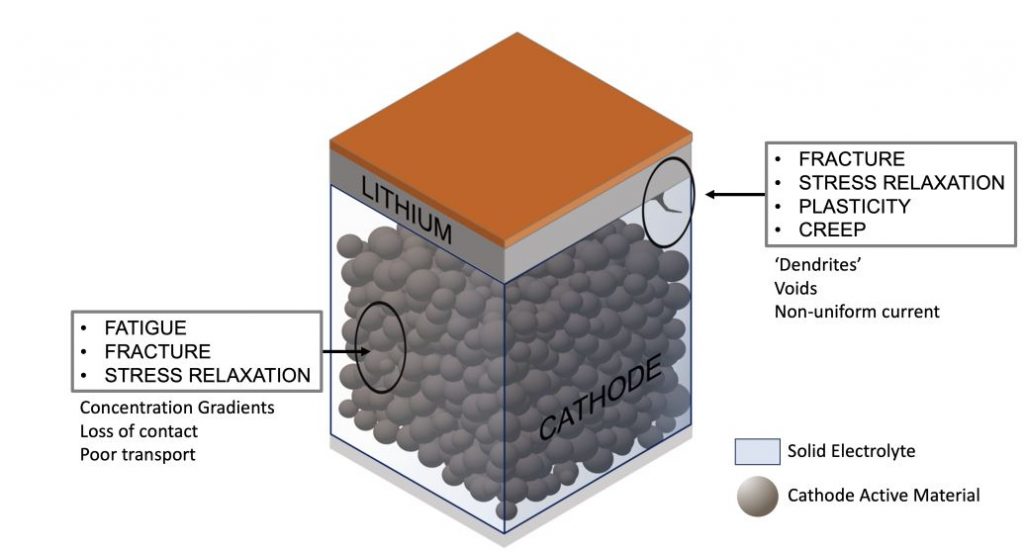 The ECS Detroit Section invites you to join Sergiy Kalnaus for his webinar on Thursday, December 16, 2021.
The ECS Detroit Section invites you to join Sergiy Kalnaus for his webinar on Thursday, December 16, 2021.
Date: December 16, 2021
Time: 1900h ET
Cost: Free
Speaker
Sergiy Kalnaus
Staff Scientist, Oak Ridge National Laboratory (more…)
 Reports to: Director of Community Engagement
Reports to: Director of Community Engagement
Classification: Full-Time Exempt
MAJOR FUNCTION
Responsible for the support and development of community engagement programs and execution of other various ECS programs and activities. Facilitates growth of the Society’s educational programming and activities to enhance continuing education offerings. Coordinates participation and execution of section and student chapter programs, student membership program, and student and section engagement throughout the Society. Promotes and increases engagement in outreach and professional development services like the ECS Career Center. Serves as staff liaison for section and student chapter relations, and works closely with staff and volunteer leaders to ensure that these relationships support the Society’s goals and objectives (more…)
241st ECS Meeting Topic Close-up: Large Scale Energy Storage
Posted on December 3, 2021 by Francesca Spagnuolo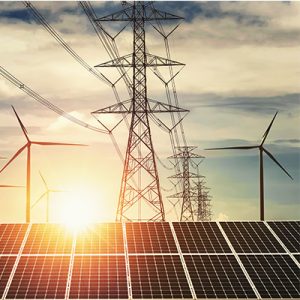 Topic Close-up #17
Topic Close-up #17
Symposium A03: Large Scale Energy Storage 13
Extended Deadline for Submitting Abstracts:
December 17, 2021
(more…)
DOE Announces $15M for Quantum-enabled Bioimaging and Sensing for Bioenergy
Posted on December 1, 2021 by Frances Chaves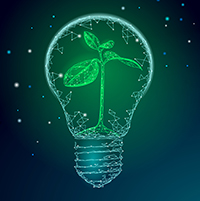 The US Department of Energy (DOE) recently announced $15 million for fundamental research or early-stage technology development of new bioimaging or sensing approaches that use quantum phenomena.
The US Department of Energy (DOE) recently announced $15 million for fundamental research or early-stage technology development of new bioimaging or sensing approaches that use quantum phenomena.
Supported efforts will advance research on plant and microbial systems relevant to bioenergy and environmental research. Projects will explore quantum science concepts that promise to enhance image resolution and provide new ways for repetitive imaging to detect fragile samples without damaging them, produce cleaner pictures, and use light beyond the visible range to see unknown features of biological shape and movement. (more…)
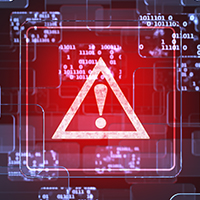 ECS is upgrading the Society’s critical technical infrastructure as part of our ongoing efforts to improve the services we provide our community. As a result, our web-based systems will be down from approximately 1600h ET, Wednesday, December 8, to Thursday, December 9, 2021. During this time, the following services will be unavailable: (more…)
ECS is upgrading the Society’s critical technical infrastructure as part of our ongoing efforts to improve the services we provide our community. As a result, our web-based systems will be down from approximately 1600h ET, Wednesday, December 8, to Thursday, December 9, 2021. During this time, the following services will be unavailable: (more…)
 Having a complete and streamlined company profile and logo attracts an elite group of professionals in your industry. The Electrochemical Society Career Center offers free detailed company profile generation and logo upload capabilities to employers. These make it possible for job seekers to locate relevant information about your company without leaving the job board.
Having a complete and streamlined company profile and logo attracts an elite group of professionals in your industry. The Electrochemical Society Career Center offers free detailed company profile generation and logo upload capabilities to employers. These make it possible for job seekers to locate relevant information about your company without leaving the job board.
Follow these recruiting tips to increase your exposure to qualified active and passive job seekers.
241st ECS Meeting Topic Close-up: Silicon Compatible Emerging Materials, Processes, and Technologies for Advanced CMOS and Post-CMOS Applications
Posted on November 30, 2021 by Francesca Spagnuolo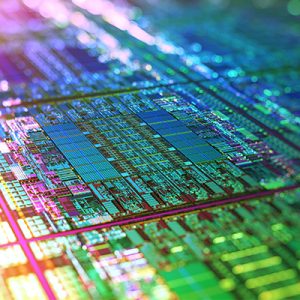 Topic Close-up #16
Topic Close-up #16
Symposium G02: Silicon Compatible Emerging Materials, Processes, and Technologies for Advanced CMOS and Post-CMOS Applications 12


